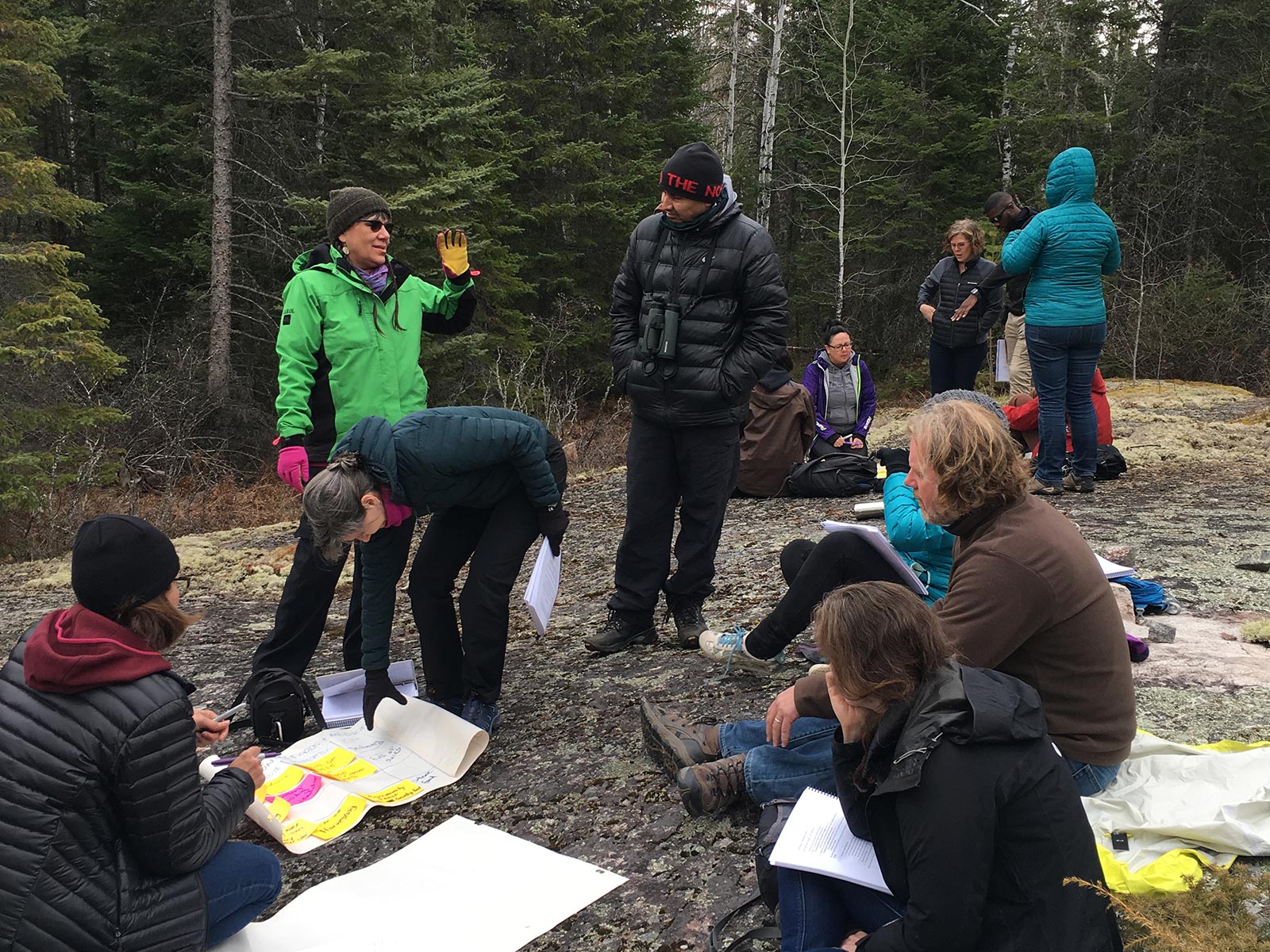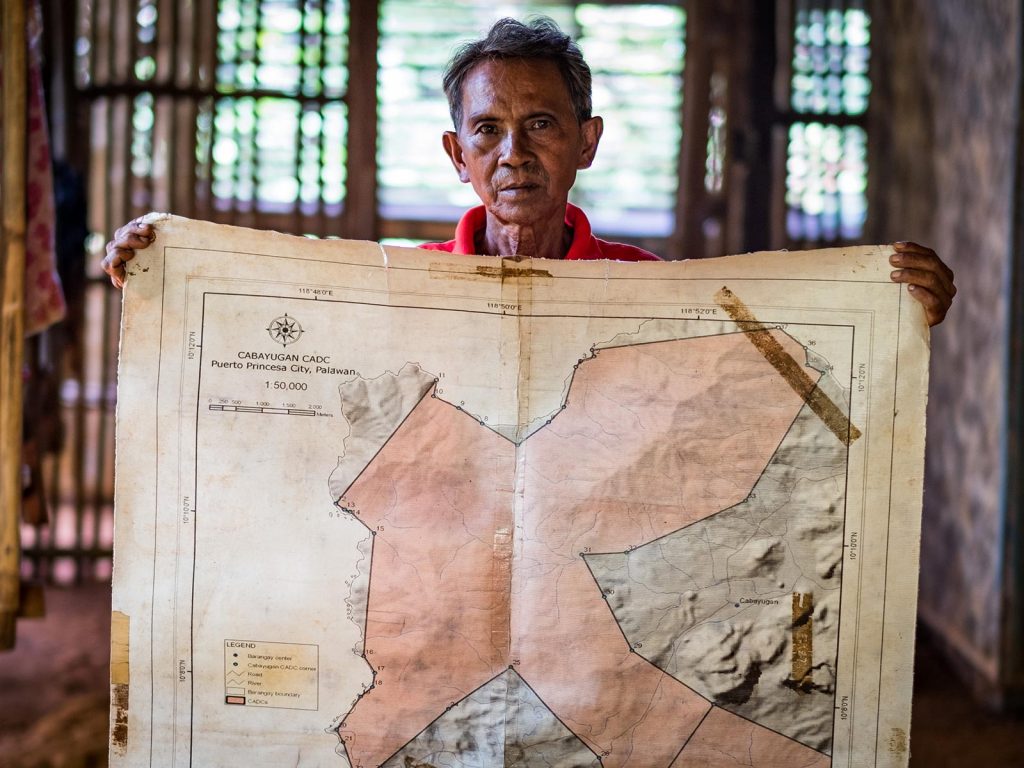Photo Credit: Jason Houston for USAID
Our Mission
The Conservation Coaches Network (CCNet) is a global community of trained professional coaches that use the Conservation Standards to strengthen conservation action and results around the world.
About CCNet
The Conservation Standards are a free, common structure practitioners can use to promote evidence-based excellence in practice and learn from each other across organizational, geographic, cultural, temporal or spatial barriers.
CCNet trains and supports Conservation Coaches to lead Conservation Standards-based projects and programs. Coaches help teams identify strategies, develop measures, capture and articulate uncertainties; they encourage on-going assessment and continuity of effort; they link practitioners with other support services and identify peer projects with similar challenges. Coaches actively promote the Conservation Standards around the world.
Collaboration & Growth
CCNet recognizes that conservation is only achieved when all key stakeholders–community leaders, scientists, resource managers–are engaged to work collaboratively toward long-term solutions. CCNet Coaches bring people together in ways that honor the diverse expertise and knowledge of a group and foster a collaborative, effective, and productive environment for decision-making and shared learning.
Common Language and Shared Ideas
Using the common language of the Conservation Standards, coaches capture, communicate, learn, and share what is working worldwide. Exemplar wetland restoration techniques in Florida can be shared with a team working in China. The Australian indigenous movement to return “on country” may be informed by participatory mapping techniques of a coach working with grazing cooperatives in Kenya.
CCNet coaches are linked and regularly connect with scores of other coaches, ensuring that such knowledge-sharing happens across organizations, countries, and continents.
CCNet coaches have played a key role in bringing people together and encouraging real collaboration in the building of good focused, conservation strategies. These are being successfully implemented on the ground in Tanzania and the Democratic Republic of the Congo. The coaches network has not only provided some support for these efforts, but it is also helping various organizations around Africa, including our own, to develop ever stronger collaborative strategies for improving conservation efforts. And not just in Africa, but in other parts of the world.
Jane Goodall, PhD, DBE
Founder of the Jane Goodall Institute and
UN Messenger of Peace

Photo Credit: Nature Conservancy of Canada
History
CCNet evolved from The Nature Conservancy’s (TNC) Efroymson Coaches Network and was chartered in 2009 to help meet the growing need to train and support coaches of the Conservation Standards.
The Efroymson Fellowship Program, launched in 1998, was made possible by a generous endowment from Dan and Lori Efroymson. The program grew under the creative leadership and passion of 35-year conservation veteran Greg Low. It was a response to requests from all over the world for education on TNC’s version of the Conservation Standards: Conservation Action Planning (CAP). In its first five years, more than 200 landscape teams, including more than 1,000 conservation practitioners from 15 nations and 49 U.S. states, and more than 100 organizations, applied CAP in the Fellowship Program.
CCNet evolved from the Efroymson Coaches Network to ensure that the conservation community’s best tools, brightest insights, and most promising strategies will be shared freely, distributed broadly, and implemented effectively among conservation practitioners throughout the world.
Since being chartered in 2009 by the World Wildlife Fund, The Nature Conservancy, Greening Australia, and Foundations of Success, CCNet has developed a truly global reach, with regional networks covering most of the planet. As of 2020, the network and its regional networks support more than 700 Coaches from more than 200 organizations operating in over 60 countries on all continents.

Photo Credit: Jason Houston
How We Operate
CCNet operates through a three-year strategic plan and activity-based budget, which is approved by its board. Annual work plans and budgets are also approved by the board.
Implementation of the work plan is overseen by the CCNet coordination team, in close coordination with the board. Regional and thematic networks play a critical role in implementation.
Progress reports are made during board calls and an annual report is shared with the CCNet community at the end of each year.
Funding for CCNet global activities is raised by the coordination team, in close coordination with the board. Partner organizations make contributions, and additional funds are raised through donations and in some cases by charging registration fees, when appropriate, to recover some training costs. Regional networks play a critical role in raising funds for strategic actions. While 40% of CCNet’s overall budget is managed by the coordination team for strategic plan actions, regional and thematic networks provide 60% of the total budget in direct funding and in-kind support for regional activities.
Here is our current strategic plan with appendices.
Organization
CCNet Coaches
CCNet is a network of individuals with the training and experience to lead project development, monitoring, and adaptation using the Conservation Standards. More than 700 coaches participate in CCNet; there is no membership fee and participation is voluntary.
CCNET Regional Networks
Regional Networks are groups of coaches that share a geographic area or other specialized interest and work together regularly to assess needs, set priorities, and support planning.
CCNET Board
The CCNet Board was established in 2009 to provide the support structure for CCNet. All franchises and partner organizations are represented on the CCNet Board. Board Chair Michael Looker provides leadership and effective management of Board meetings.
CCNET Partners
The founding partners of CCNet were The Nature Conservancy, WWF, Greening Australia, and Foundations of Success. CCNet partners are organizations, agencies, and institutions that are committed to implementing the Conservation Standards and supporting coaches who actively support the practice. Individuals represent the partner organizations on the CCNet Board.
We welcome other partners!
Our Network values:
Results Oriented. We are committed to tangible conservation outcomes using and adapting the best known approaches to conservation project planning and management.
Inclusive and Diverse. We are committed to engaging many different organizations, partners, and practitioners to operate as a network of peers encouraging diverse ideas, multiple languages, and culturally sensitive and ecologically distinct adaptations and applications.
Innovation and Excellence. We are committed to encouraging new techniques and enhancements to ensure continual improvement, and integrating and being informed by the best available conservation science in every step of the process.
Distributed Responsibility and Non-Hierarchical. We will function as a network of peers assisting all to achieve their full potential as coaches while working in a cooperative and collaborative manner.
Culture of Cooperation. Our network is committed to sharing and learning in an open and supportive manner and will have a culture of acceptance, cooperation, honest and respectful exchange, and celebration in our work with each other and with our partners.
CCNET Coordinating Team
The Coordinating Team is composed of the Board Chair, Senior Advisors, and two part-time paid staff (from partner organizations). The Coordinating Team organizes Board meetings and Coach Rallies, organizes and staffs Coach Trainings, organizes coach resources, coordinates the Regional Networks, and keeps the lights on.
Contact CCNet
John Morrison, Global Coordinator
Cristina Lasch, Technical Coordinator
Coaches Resource Library
CCNet maintains a variety of resources to support Coaches in the presentation and use of the Conservation Standards. Most of the resources are found in multiple languages in the Coaches Notebook that is part of CCNet New Coach Trainings. In addition, in our Resource Library you can find a wealth of support materials shared by Coaches and Conservation Standards practitioners.
Photo Credit: Ashleigh Baker
Our Collaborators
Every organization, agency, project, and individual has its own preferred set of terms. There is no right answer – the most important thing is that the members of your project team and the people with whom you work have a clear and common understanding of whatever terms you choose to use.
Photo Credit: Chris Scarffe
Download CS
The Conservation Standards is the product of inputs, field tests, and discussions among members of the Conservation Measures Partnership (CMP), which has final editorial authority over the Conservation Standards. Substantial input was also provided by members of the Conservation Coaches Network (CCNet) and other CMP partners.
Photo Credit: Felix Cybulla
Contact CCNet
To inquire about supporting CCNet or for general inquiries, please contact:
John Morrison - CCNet Global Coordinator john.morrison@wwfus.org
Cristina Lasch - CCNet Technical Coordinator clasch@tnc.org
Photo Credit: Diane Detoeuf
